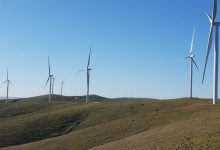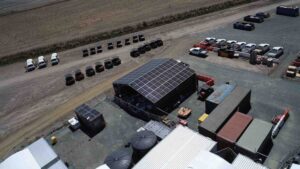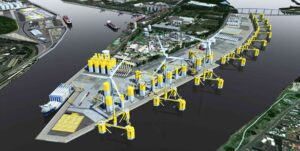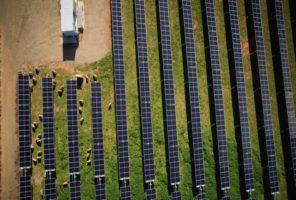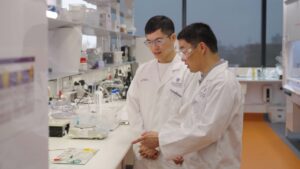Australian supermarket giant Coles has put meat on the bones of its plan to source 100% renewable electricity by the end of the 2025 financial year, after sealing the last of the deals needed to meet its “ambitous” target.
Coles said on Friday that new agreements had been signed with Origin Energy, Acciona Energía, and Engie to source large-scale generation certificates (LGC) from renewable energy generated at wind and solar farms across Australia.
The LGCs will be drawn from existing sites, including the Engie’s Willogoleche wind farm in South Australia and Acciona’s Mt Gellibrand wind farm in Victoria as well as from several wind and solar farms under construction, that were not named – more details on these projects has been sought.
The new deals make up the final portion of electricity the retailing giant had to make up, following the renewable offtake deals announced in April – with Neoen and Engie – that had committed Coles to purchasing more than 70% of the renewable electricity required to meet its FY25 target.
That said, the deals have been confirmed to be for LGCs only, in that Coles has agreed to buy the LGCs created by the existing and already committed/under construction renewable energy plants, but not procure the actual electrons.
This is all by the book, including by the measures of organisations like RE100 – of which Coles is not yet a member – but it is not considered to be the “gold standard” of renewable energy procurement, in that it doesn’t directly contribute to the creation of new renewable energy projects.
Anita Stadler, the head of renewable energy investments at Energetics, said the question often asked of major corporations announcing renewable electricity deals is whether they point to any additionality – have they contributed to the creation of new renewable energy projects?
“There is a view [among many green groups] that the project must be new and it must be a contract for both the power and the LGCs, because that’s the gold standard,” Stadler told RenewEconomy.
Coles did meet that “gold standard” with its first renewable energy power purchase agreements in 2019, when it become the first major Australian retailer to commit to buying renewable electricity from new solar farms in NSW, as RE reported here, and last year committed to source more than 90% of its Queensland electricity requirements from CleanCo.
But, as Green Energy Markets’ Tristan Edis points out, these sorts of bundled deals made directly with project developers have in many cases turned out to be enormously complex and “quite problematic,” particularly in terms of getting projects built and online in time.
As Coles noted in its announcement today, the 30MW Corowa solar farm – one of the three NSW solar farms Coles signed a bundled PPA with in 2019, which had been under development since 2017 – only became fully operational in June of this year.
Edis says that bundled PPAs, which include the LGCs and the electrons, are now also less economically attractive – that is, businesses can expect to pay a premium for them – than simply buying LGCs and surrendering them.
“When they do these strip deals, LGCs over space of a 10-year period, they can get prices substantially lower than in the brokered market,” he told RenewEconomy. “But this stuff is not going to get us new projects.”
Greenpeace Australia Pacific, which today commended Coles for its shift away from coal power, told RE that its perspective, too, was that “best practice” for corporations to meet their renewable energy targets – and in terms of contributing to overall decarbonisation – was to ensure the deals were with new-build renewable energy projects.
Nevertheless, the REenergise campaign director from Greenpeace Australia Pacific, Lindsay Soutar, said that Coles’ clean energy switch had “far-reaching implications,” and would put the pressure on other Australian businesses to follow their lead.
Soutar also urged the supermarket giant to join Woolworths in signing up to the global RE100 program, an international alliance of businesses committed to 100% renewable electricity that also acts as a third party to independently verify companies’ renewable energy and climate claims through a system of annual reporting.
Coles chief sustainability officer Thinus Keevé said on Friday that he was “extremely proud” that Coles had created a clear pathway to achieving its 100% renewable electricity target on schedule – and had done so less than a year after announcing the target.
“As part of Coles’ Sustainability Strategy, including Together to Zero, we set the ambitious target to be
powered on 100% renewable electricity by end of FY25,” he said.
“We can now say with confidence that Coles will be 100% renewable from July 1, 2025, which is an incredible achievement.”

